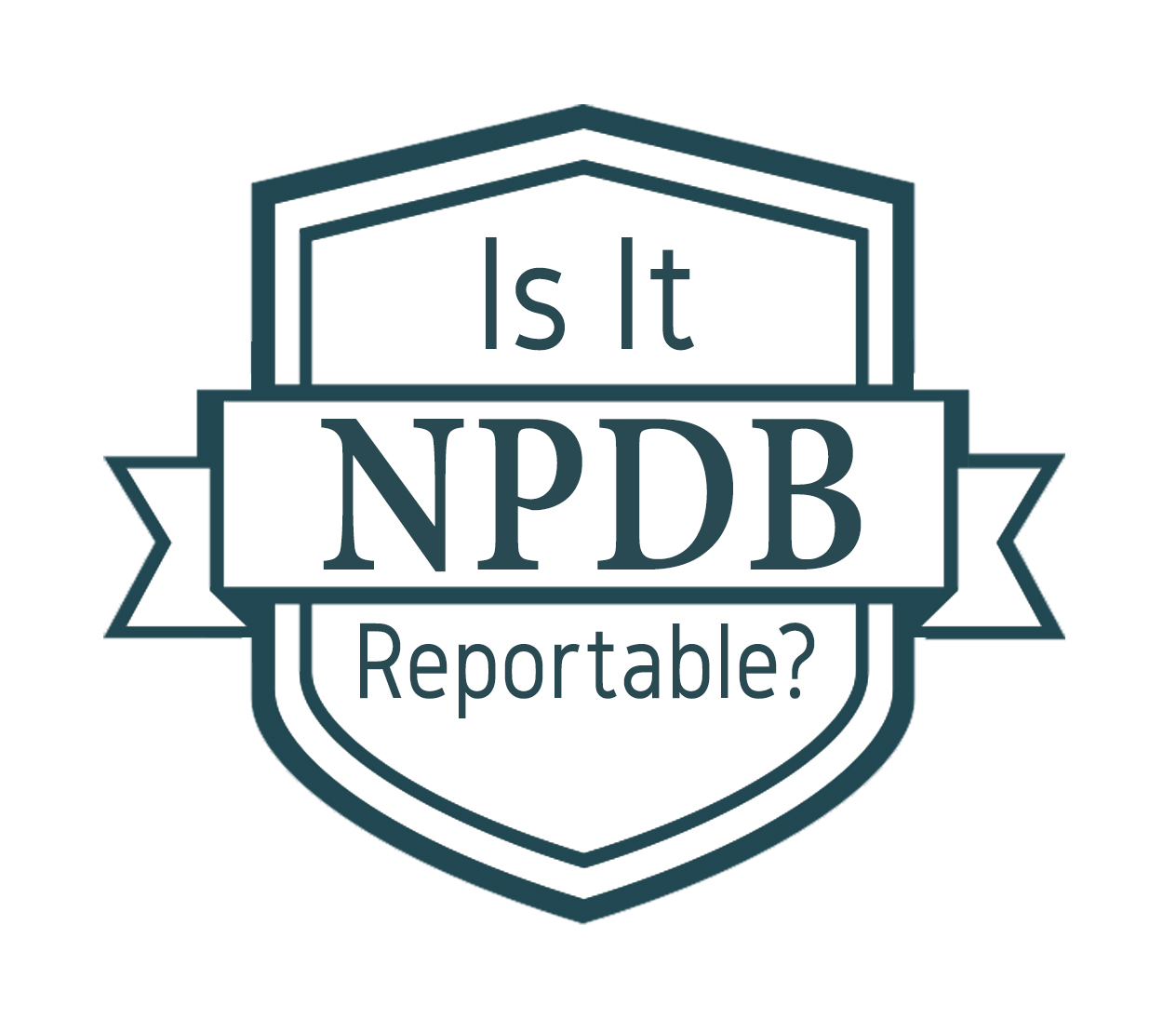NPDB Insights - April 2020
National Practitioner Data Bank Query Fees Waived
The NPDB is temporarily waiving query fees (both one-time query and continuous query) to support our users' efforts in combatting the COVID-19 pandemic. The waiver is retroactive from March 1, 2020, through May 31, 2020.
NPDB Fee Waiver Q&A Teleconference Calls
Thursday, April 16
1:00 – 2:00 PM ET
Dial-in: 800-988-9707
Participant Code: 9503253
Teleconference Recording (generally available one hour after the call ends)
Replay Dial-in: 866-463-2176
Thursday, April 23
1:00 – 2:00 PM ET
Dial-in: 888-566-6153
Participant Code: 1104687
Teleconference Recording (generally available one hour after the call ends)
Replay Dial-in: 800-677-5855
Teleconference Slides (PDF - 355 KB)

Is It Reportable?
A preferred provider organization (PPO) investigated a member physician after receiving quality of care complaints from several plan participants. The physician was unaware of the investigation, but, during the investigation, he relinquished his panel membership for personal reasons. Is this reportable?
Yes. A health care entity must report a physician's surrender of panel membership (a form of clinical privileges) while under investigation. The reporting entity should be able to produce evidence that an investigation was initiated prior to the surrender; the physician's awareness of the investigation is immaterial. In addition, in this situation, any termination of the physician's contract with the PPO must be reported to the NPDB separately if the action meets the definition of an "other adjudicated action or decision."
The Advantages of Multiple Administrator Accounts

Each registered organization must have at least one NPDB administrator, but there are many advantages to maintaining multiple administrators on your account. Administrators are responsible for maintaining your organization's NPDB profile, and performing several vital functions to uphold your organization's uninterrupted and secure access to the NPDB, such as:
- Providing account recovery assistance for individual users in the event that they need to reset passwords or look up individual User IDs;
- Maintaining user accounts, creating new accounts, deleting inactive accounts, and assigning user account roles;
- Providing account security by reviewing and approving user registrations; and
- Maintaining your organization's account and renewing and updating your entity registration.
As these acts can be performed only by an administrator, the NPDB recommends assigning multiple administrators to your account in the event that one administrator is unavailable. Maintaining multiple administrators and regularly reviewing your user registrations ensures that your NPDB account is as accurate and up to date as possible.
To assign an administrator role to one of your users, sign in to your administrator account and complete the following steps:
- Select Maintain User Accounts on the Administrator Options page.
- Choose the relevant account on the Maintain User Accounts page.
- Under Roles on the User Account Request page, select Administrator and then select Save.
If you do not have a current administrator, you must designate one as soon as possible. Visit our How to Become the New Administrator page for further instructions.
To learn more about managing User IDs and retrieving passwords, visit our How to Manage User IDs and Passwords page.

Dear NPDB
Is my organization required to report proctoring to the NPDB?
Many organizations require proctoring (also called preceptoring, mentoring, monitoring, etc.). Whether or not your organization is required to report an assignment of a proctor depends on several different factors. If, for more than 30 days, a practitioner cannot perform certain procedures without proctor approval or without the proctor being present, the proctoring is considered a restriction of clinical privileges and must be reported. However, if the proctor is not required to be present for or approve the procedures, the action is not considered a restriction of clinical privileges and should not be reported.
Below are a few factors to help you determine whether or not the assignment of a proctor must be reported:
| Proctoring IS REQUIRED to be Reported if: (All 3 conditions must be met) |
Proctoring IS NOT REQUIRED to be Reported if:
(1 or more conditions met) |
|---|---|
|
|
For more information on proctoring, visit Chapter E: Reports in our Guidebook. If you need additional help determining if the assignment of your proctor is reportable, contact our Customer Service Center.
The latest updates and resources are available at https://www.npdb.hrsa.gov.
Previous editions of NPDB Insights are available in our archive.
 An official website of the United States government.
An official website of the United States government.

